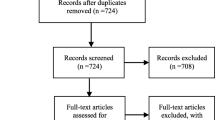Summary
Students of three different levels and the chairman of the MD-Program evaluated the educational system of McMaster University, Canada, using the six criteria of the case method as defined by Renschler. This analysis provided a very differentiated evaluation of the McMaster curriculum, demonstrating a systematic progress of learning methods from the second to the last phase.
The instrument showed differences in the ratings of the demonstrative lectures between the chairman and the students. Free access to patients and responsibility, gradually growing during the 3-year program, are important features of the educational system. The problem-based system provides a unique integration of acquiring theoretical knowledge in the basic sciences through clinical problem solving which was highly rated in all analysed phases. Ratings given by the interviewed students for evaluation of documented work were lower than expected by the chairman and the authors. The results are discussed in relationship to the McMaster Philosophy and to the conditions of studying medicine in America and in Germany.
Similar content being viewed by others
Literatur
Association of American Medical Colleges (1985) Medical School Admission Requirements 1986–87 United States and Canada 36th Edition. AAMC, Washington, D.C.
Association of American Medical Colleges (1988) 1988–89 AAMC Curriculum Directory 17th Edition. AAMC, Washington, D.C.
Bentley JD (1988) New York Limits Housestaff Hours. AAMC Weekly Report 2:No. 29
Billroth T (1876) Über das Lehren und Lernen der medicinischen Wissenschaften an den Universitäten der deutschen Nation nebst allgemeinen Bemerkungen über Universitäten. Gerolds Sohn, Wien
Crowley AE, Etzel SI, Perterson ES (1986) Undergraduate Medical Education. JAMA 256:1557–1564
Ferrier BM, Woodward CA (1983) Does premedical academic background influence medical graduates' perceptions of their medical schools or their subsequent career paths and decisions? Med Educ 17:72–78
Fintz J, Glänzer K, Renschler HE, Voss G (1976) Computer-Unterstützter-Unterricht in der medizinischen Ausbildung: USA-Kanada-Reise 22.9.–10.10. 197t: Reisebericht. Institut für Didaktik der Medizin, Bonn
Fraenkel GJ (1978) McMaster revisited. Br med J 2:1072–1076
Greenberg LW, Jewett LS (1985) The Impact of Two Teaching Techniques On Physicians' Knowledge and Performance. J Med Educ 60:390–396
Harden RMcG, Stevenson M, Downie WW, Wilson GM (1975) Assessment of clinical competence using objective structured examinations. Br Med J 1:447
Heale J, Davis D, Norman G, Woodward C, Neufeld V, Dodd P (1988) A randomized controlled trial assessing the impact of problem-based versus didactic teaching methods in CME. Annu Conf Res Med Ecuc 27:72–77
Infratest Gesundheitsforschung (1987) Untersuchung über die Anforderung an eine ordnungsgemäße ärztliche Ausbildung und über die tatsächliche Situation in der ärztlichen Ausbildung. Infratest Gesundheitsforschung, München
Irrgang D (1987) Aspekte der Ausbidlung des Mediziners im deutschsprachigen Kulturraum zwischen 1872 und 1901 anhand von Selbstzeugnissen deutscher Ärzte. Medizinische Dissertation, Bonn
Kidder LH, Judd CM, Smith E (1986) Research Methods in Social Relations Published for the Society for the Psychological Study of Social Issues. Holt, Rinehart and Winston, New York, Chicago
La Palio LR, Filling CM, Engel JD, Ways PO (1983) Multiple Strategies for Studying Medical Clerkship Experiences: A Case Study. J Med Educ 58:328–334
McMaster University (1984) M.D. Program — General Guide, 1984. McMaster University, Hamilton, ON
Neufeld VR, Barrows HS (1974) The McMaster Philosophy: An Approach to Medical Education. J Med Educ 49:1040–1050
Olson JO (1987) The McMaster Philosophy: A student's perspective on implementation. Med Educ 21:293–296
Renschler HE (1987) Definition der Fallmethode aus ihrer geschichtlichen Entwicklung in den Medizinschulen Europas. Schweiz Rundschau Med (Praxis) 76:981–996
Schmidt HG (1983) Problem-based learning: rationale and description. Med Educ 17:11–16
Stenchever MA, Irby D, O'Toole B (1979) A National Survey of Undergraduate Teaching in Obstetrics and Gynecology. J Med Educ 54:467–470
World Federation for Medical Education (1988) The Edinburgh Declaration. Lancet 2:464
Author information
Authors and Affiliations
Rights and permissions
About this article
Cite this article
Thomas, M.S., Renschler, H.E. Bewertung der ärztlichen Ausbildung an der McMaster Universität, Kanada, anhand des Konzepts der „Fallmethode“. Klin Wochenschr 67, 421–430 (1989). https://doi.org/10.1007/BF01725137
Received:
Revised:
Accepted:
Issue Date:
DOI: https://doi.org/10.1007/BF01725137




